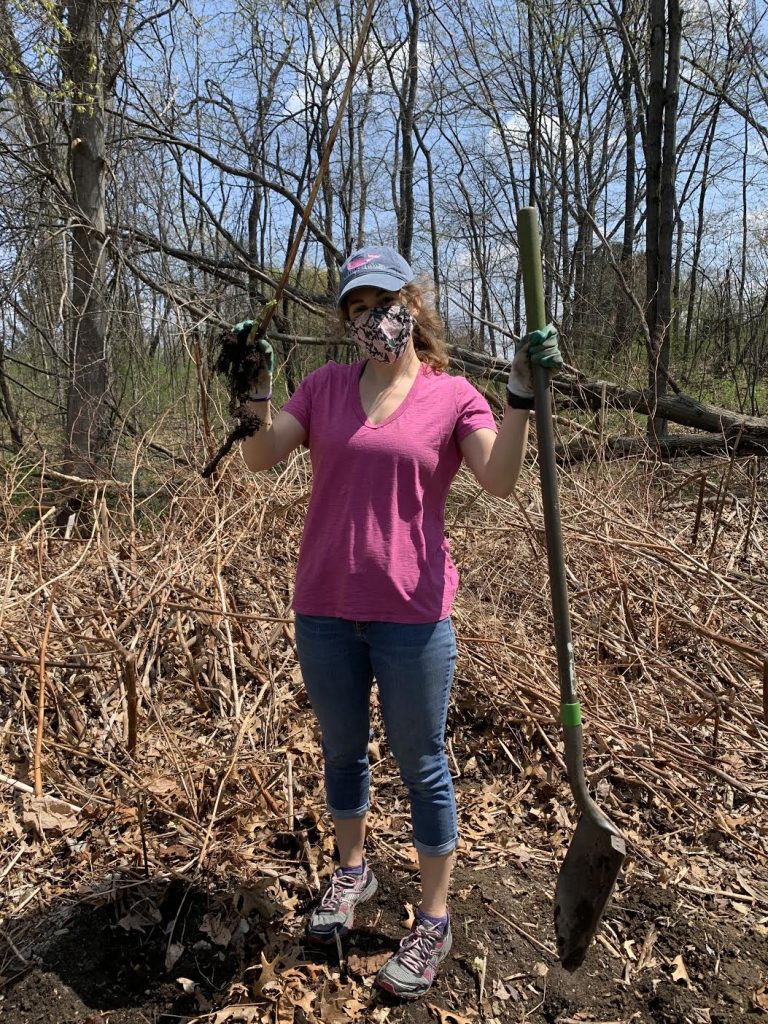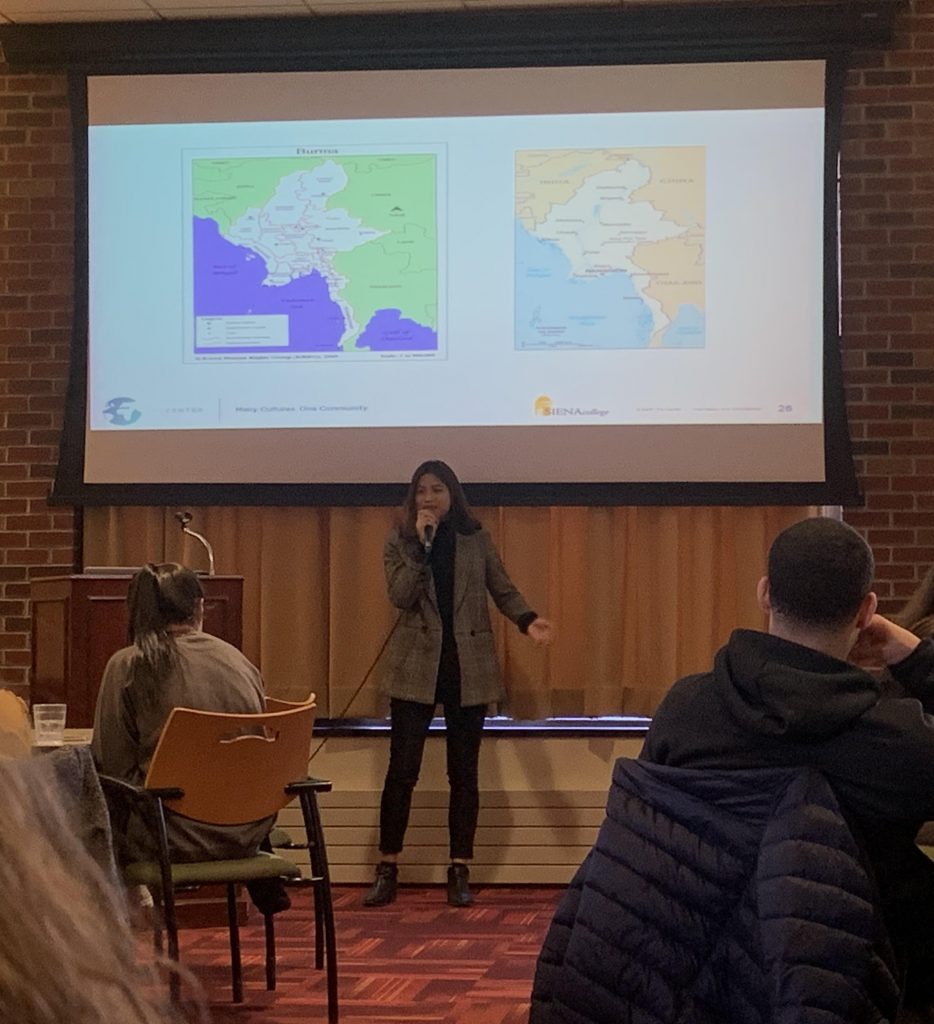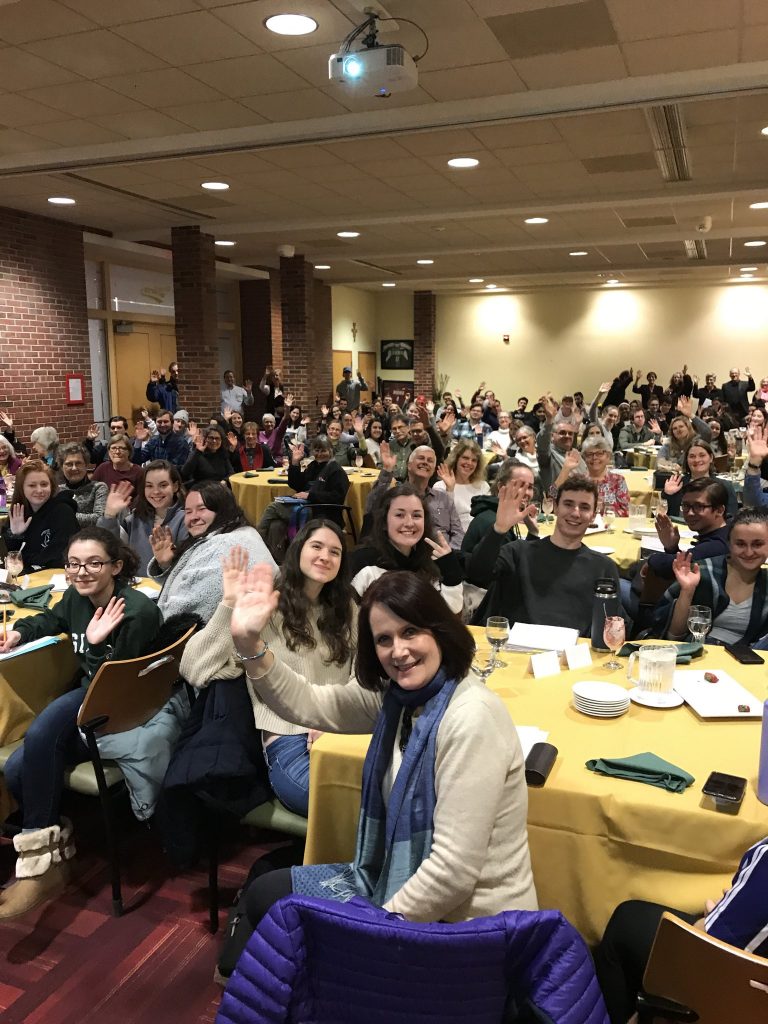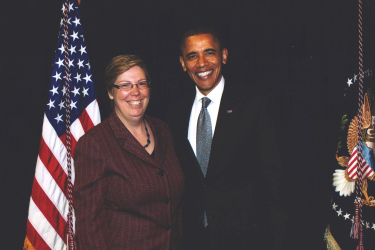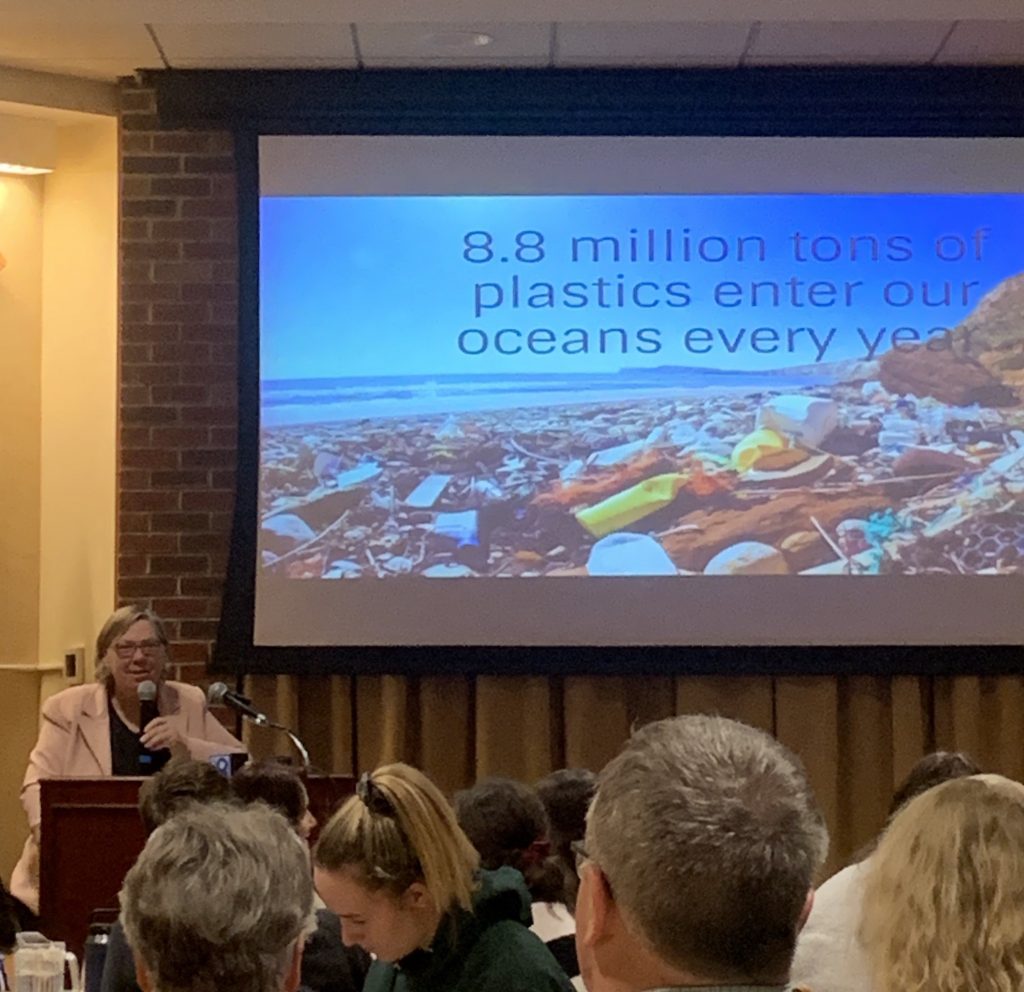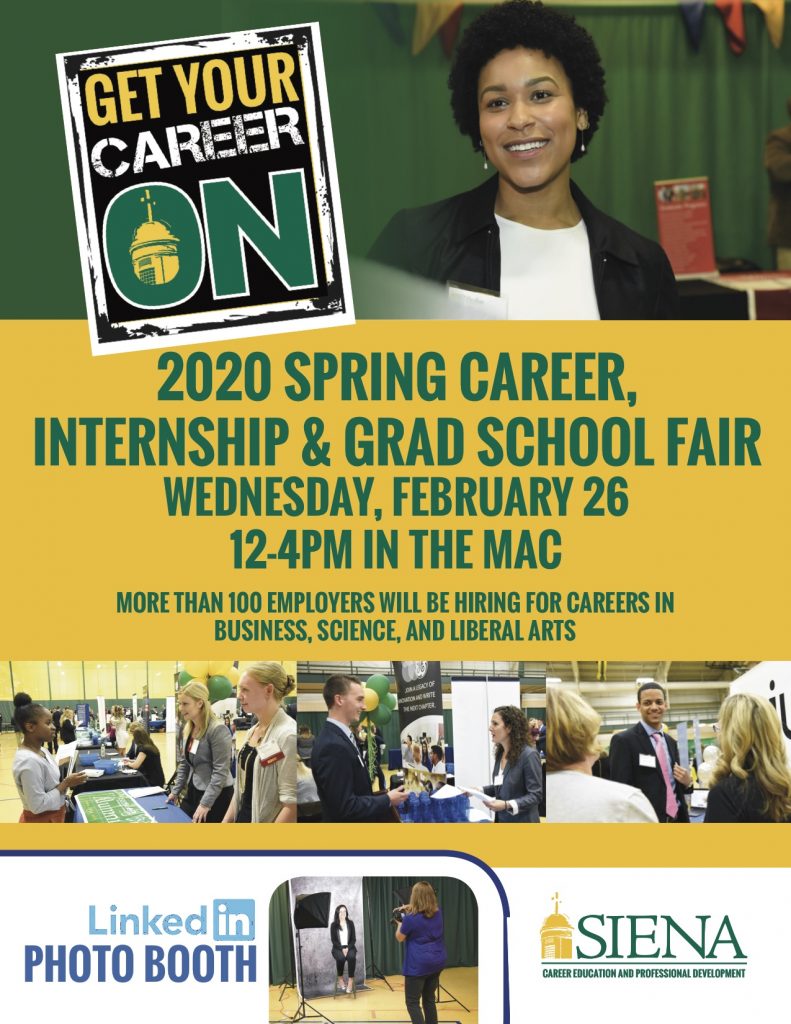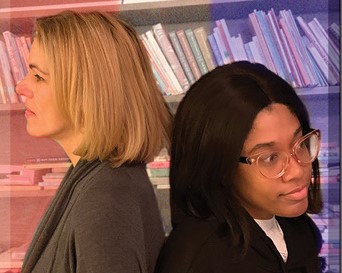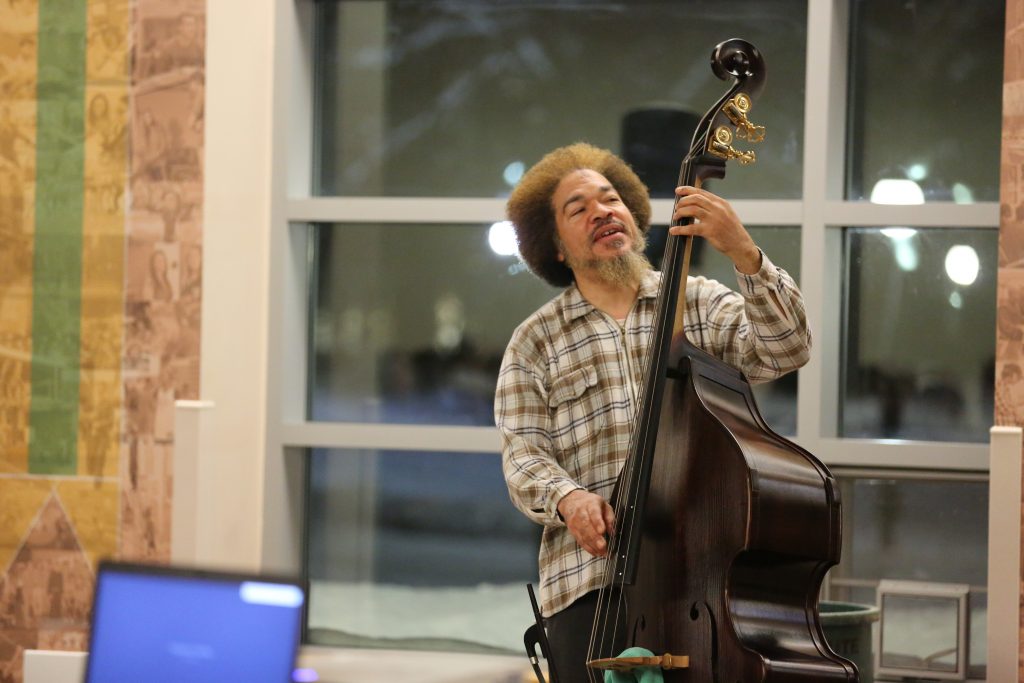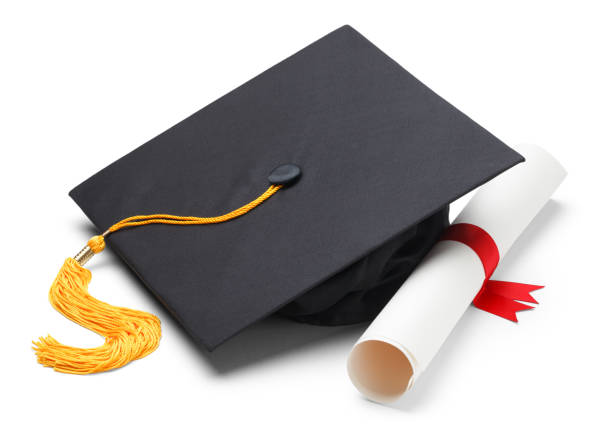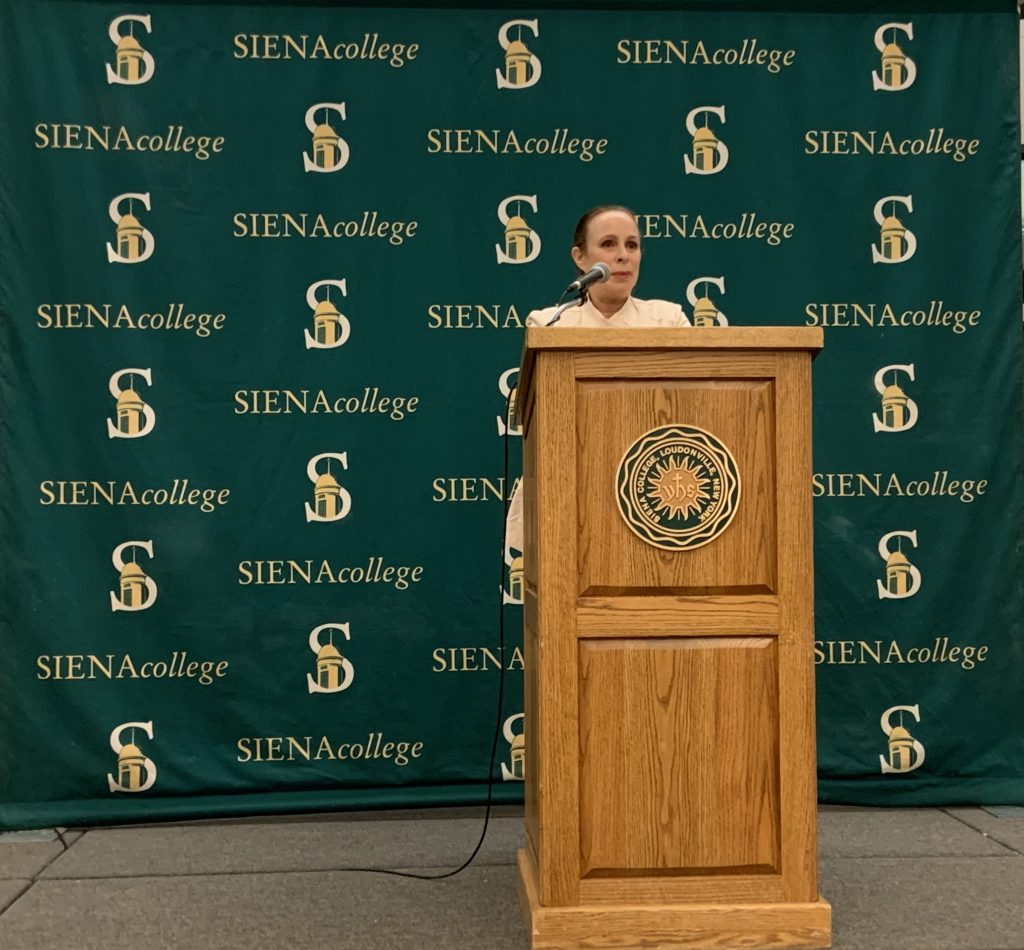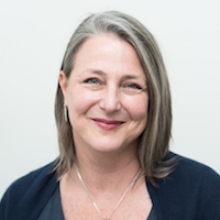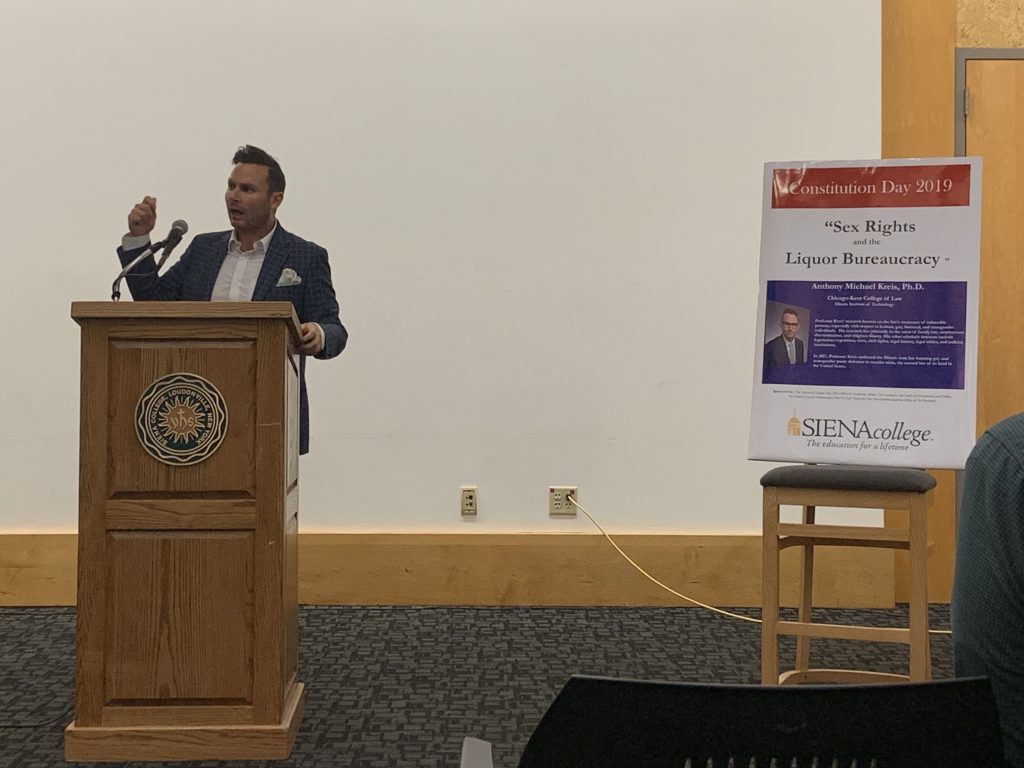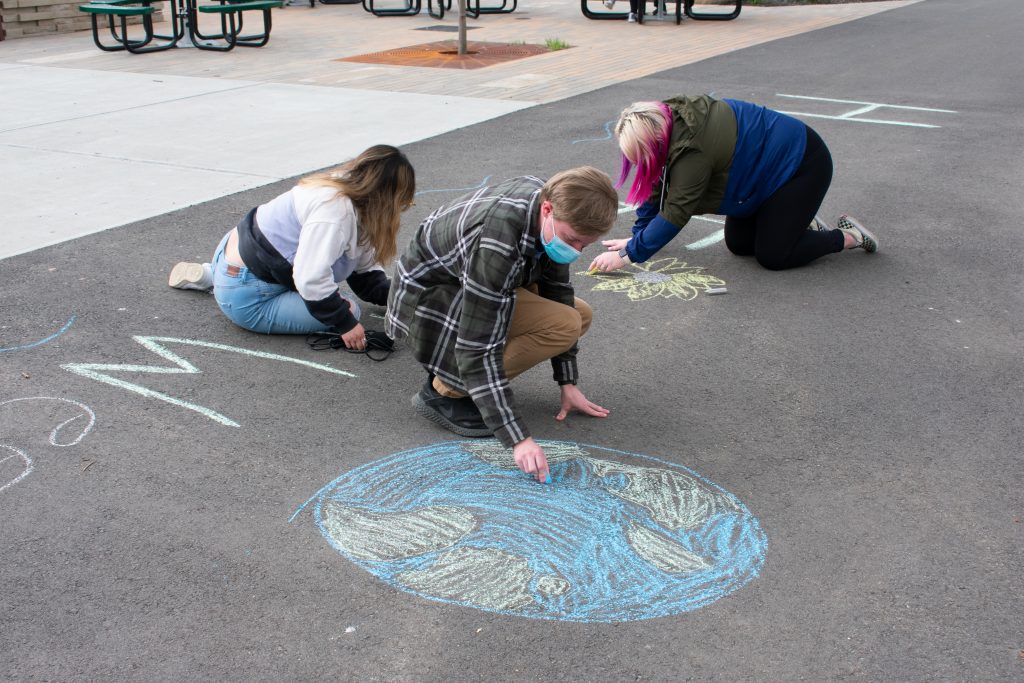
By: Kiera Mitru
The phrase “go green, live gold” become more and more common around campus. Its bold letters are printed on the new Ozzi machine, on the free canvas bags sponsored by the Franciscan Center and the Environmental Club, and lived through the actions of Siena’s community. Through campus cleanups and outreach to students and faculty, Saints have started to adopt more sustainable habits and take steps toward climate justice. During Earth Week, April 19th-April 24th, students and faculty alike rallied in support of Earth Day, the momentum of which is intended to be carried forward for years to come. With joined efforts from the Environmental Club, the Franciscan Center, Habitat for Humanity, Student Senate, and more, each event was a resounding success.
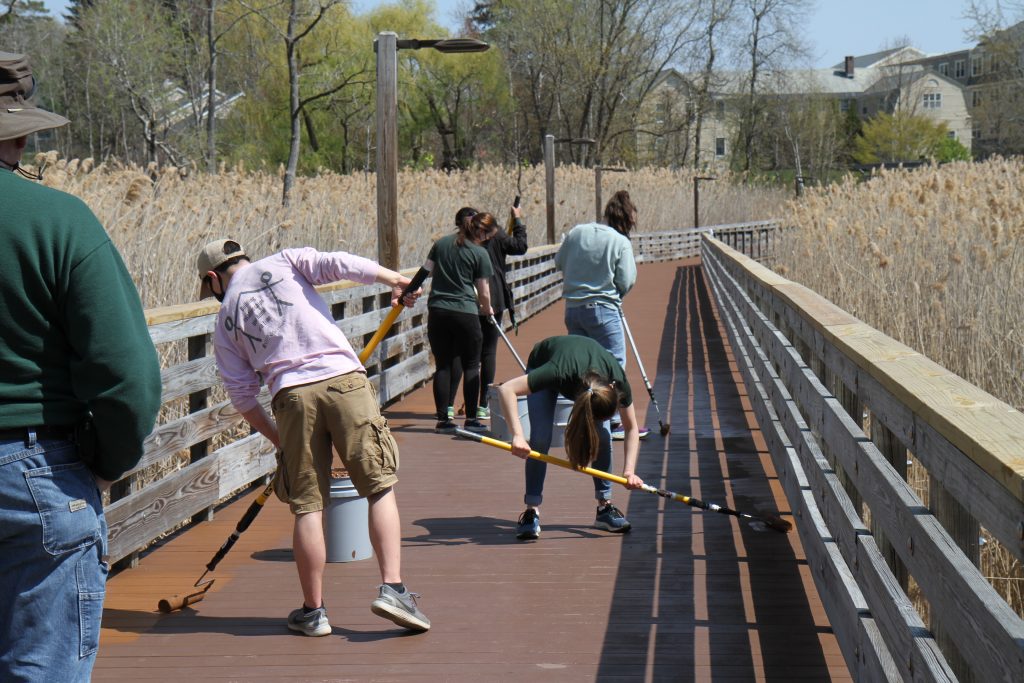
“Lend a hand to save the land” was the theme of the Environmental Club’s 2021 Earth Week events, thoughtfully scheduled throughout the week to bring climate justice awareness and activism to students campuswide. Some of the activities included chalk drawing, outdoor yoga with Dr. K, a free succulent giveaway, a free canvas bag and Fair Trade product sample table, a virtual movie night, and a fashion show highlighting students’ sustainable steez.
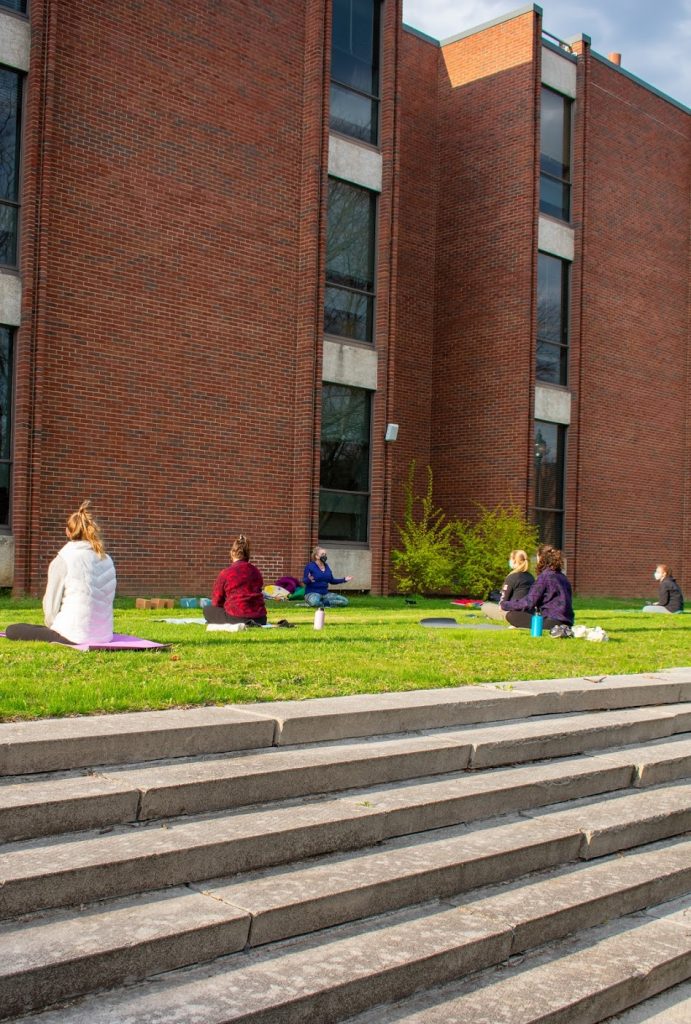
For those that have adopted plant-based lifestyles in honor of the Earth, the Lonnstrom dining hall featured vegan and vegetarian options throughout the week, including quinoa veggie burgers, kale, beet, and sweet potato chips, as well as “worms n’ dirt” cupcakes and vegan mint “mulch” chocolate chunk blondies. Siena Fresh has also recently invested in an Ozzi machine, which collects and sorts reusable takeout containers for guests of the Lonnstrom dining hall. Before the introduction of this sustainability effort on campus, the Lonnstrom dining hall alone would dispose of around 112,000 single-use containers per week (Siena Fresh). Since introducing reusable containers, Siena has significantly reduced the amount of waste sent to landfills, working to keep the Earth cleaner!
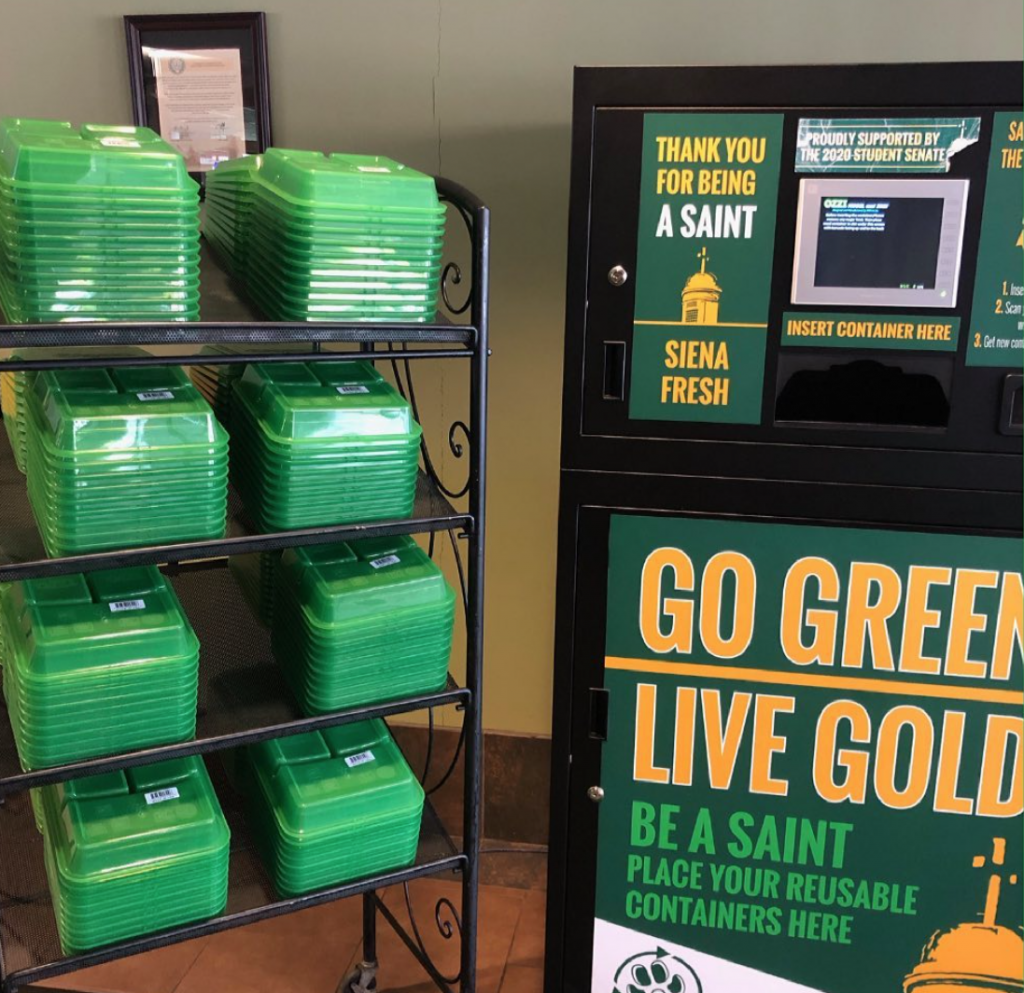
The week’s grand finale was Saturday’s Community Service Day, dedicated to the stewardship of the land we call home. This event celebrated and put into action the care for the planet that the Environmental Club vocalized throughout the week, as well as the Franciscan tradition that takes root and grows on our campus. In reflection of the example set by Saint Francis many years ago, Environmental Club Events Coordinator, Jessica Dupont shares that, “St. Francis is the patron saint of ecology, and we don’t really reflect that enough in the ways that students approach the environment. By having a week dedicated to celebrating the Earth and its connection to our Franciscan heritage, we take time to reflect on what makes our community’s Franciscan tradition special.” The Community Service Day commenced with a reflection from Frather Tito Serrano, who shared that Francis’ work was centered in service to the Earth. Mentioning Francis’ timeless Canticle of the Creatures, Father Tito urged participants to view features of nature and the Earth as brother and sister, just as Francis did.
After receiving this reflection, Community Service Day participants dispersed in small groups across campus, completing projects out of reverence and service to the Earth. Some of these activities included building additional raised plant beds for the Rosetti gardens, painting and maintenance of the Thompson Trail, uprooting patches of the invasive Japanese Knotweed species, collecting recyclable bottles and cans at different stations in residential areas, bird house and bench building, as well as general trash pickup around campus.
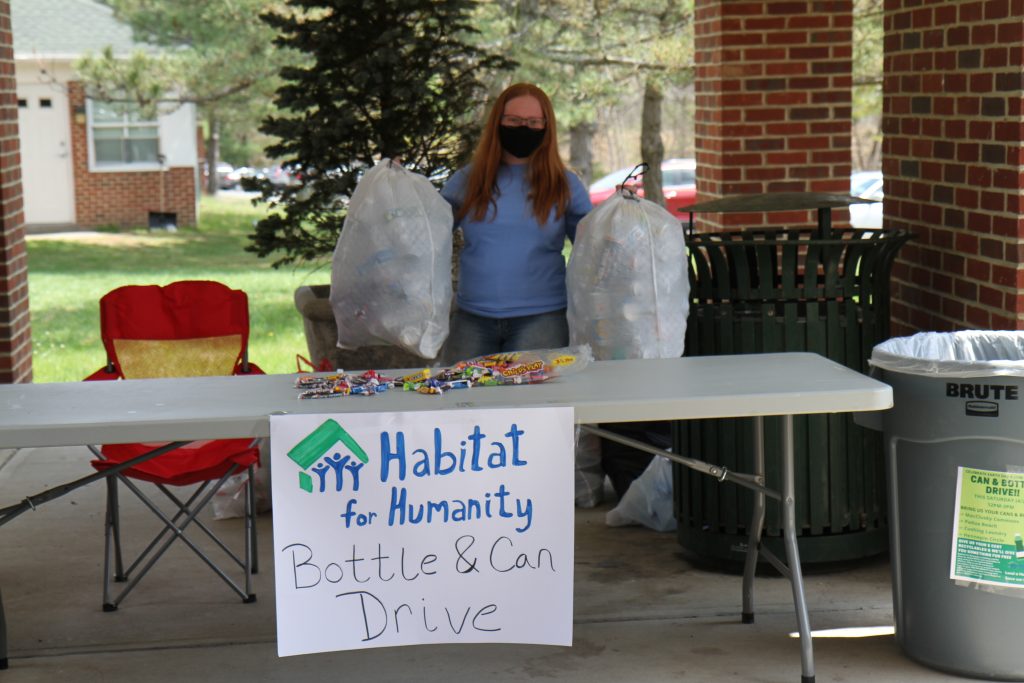
Jessica Dupont shares further that, “People smiled so much when interacting with us and you could tell that students and staff really believed in what we were doing and were excited to get involved. Many expressed excitement that we were holding a whole week to celebrate the earth.” By organizing a series of events, the Environmental Club is hopeful to maintain a powerful campus-wide momentum toward achieving climate justice. Looking closer at the projects they completed, the four-person team working on the general trash pickup mission shares that, “We retrieved 9 full bags of plastic, glass, cans, and a variety of other materials out of the wetlands on campus. These materials don’t break down, and if they did, would release toxins into our protected wetlands.” In the spirit of Francis’ example, students across campus are acting in reverence and respect for the spaces that we call home, as well as that of the wildlife at Siena.
The closing lines of Francis’ famed Canticle share, “Praise and bless my Lord / and give Him thanks / and serve Him with great humility” (Saint Francis). In these final lines, we can observe the deep connection Francis fosters with not only his faith but also the natural world, making it only apt to name him the patron saint of ecology. It is in the final line that Francis calls us to action as Siena Saints. He asks us to serve the Earth with good care and forward-looking intention; aiming to harvest hope, dedication, and optimism among those that follow in his footsteps.
